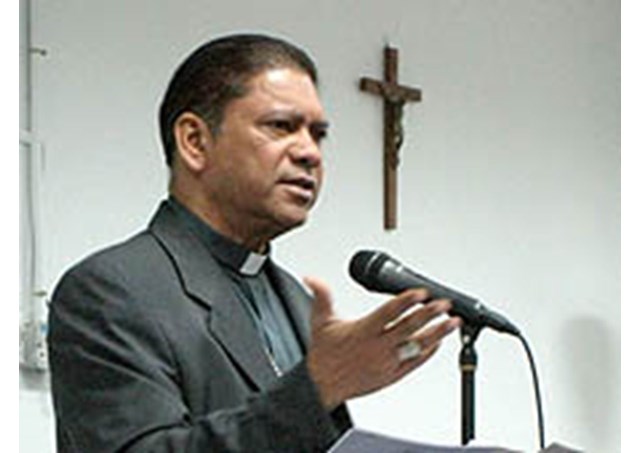
AB Machado: a personal perspective on Nostra Aetate anniversary

(Vatican Radio) Wednesday, October 28th marks the 50th anniversary of the Second Vatican Council declaration, Nostra Aetate, which profoundly reshaped the Catholic Church’s relationship with people of other faiths. Issued in the closing weeks of the Council in 1965, the document for the first time urged Catholics to recognize the truth present in other religions and to work together with other believers for the benefit of all of humanity.
Over the past half century, the message of that document has been taken up by interfaith groups across the globe, often promoted and coordinated by the Pontifical Council for Interreligious Dialogue. Archbishop Felix Machado of the diocese of Vasai in India is former under-secretary of that Council and was a key speaker at a recent conference at the Jesuit Georgetown University in Washington DC. The encounter was organised by the Ecclesiological Investigations International Research Network to discuss the ecumenical and interfaith legacy of the Second Vatican Council.
Archbishop Machado sat down with Philippa Hitchen to talk about the different forms of dialogue and about the challenges facing those engaged in interfaith relations today..
Listen to the full interview:
"Vatican II for us in Asia, and particularly in India, has been God’s grace because I cannot imagine how we could live our Christianity with the kind of world today, if it were not for the revolutionary opening up - aggiornamento – of the Second Vatican Council."
He says Christianity came to India through the missionaries who brought it in a way which was largely seen as foreign, apart from a few exceptions like a British Jesuit who translated the Christian message into the local languages. With Vatican II, he says, it was time for us to see it not as "a religion of foreigners" but as "our own life-giving faith".
On a personal note, Archbishop Machado recalls the visit of Pope Paul VI to India in 1964, two years before he joined the major seminary. As a young boy, growing up in the rural area around Bombay, he says he had never been allowed to go on a train, but persuaded his parents to let him go to all the liturgies of the 30th Eucharistic Congress taking place in the city. When Paul VI came, his father, a farmer, took the whole family to the airport to see the Pope and his memories of those days, Machado says, had a huge impact on him when he began to read the Council documents.
The Indian archbishop says his country "is a land of dialogue and that is why I feel very sorry about the direction we are going now". He says he grew up among Muslims, Hindus, Buddhists, Zoroastrians, and Jains, but the identity of his devout Catholic family was never put into question. When the Council came with its message of dialogue, he adds, it was a great thing because it helped the Church to become "alive in each Christian, in each baptized person".
| All the contents on this site are copyrighted ©. |


